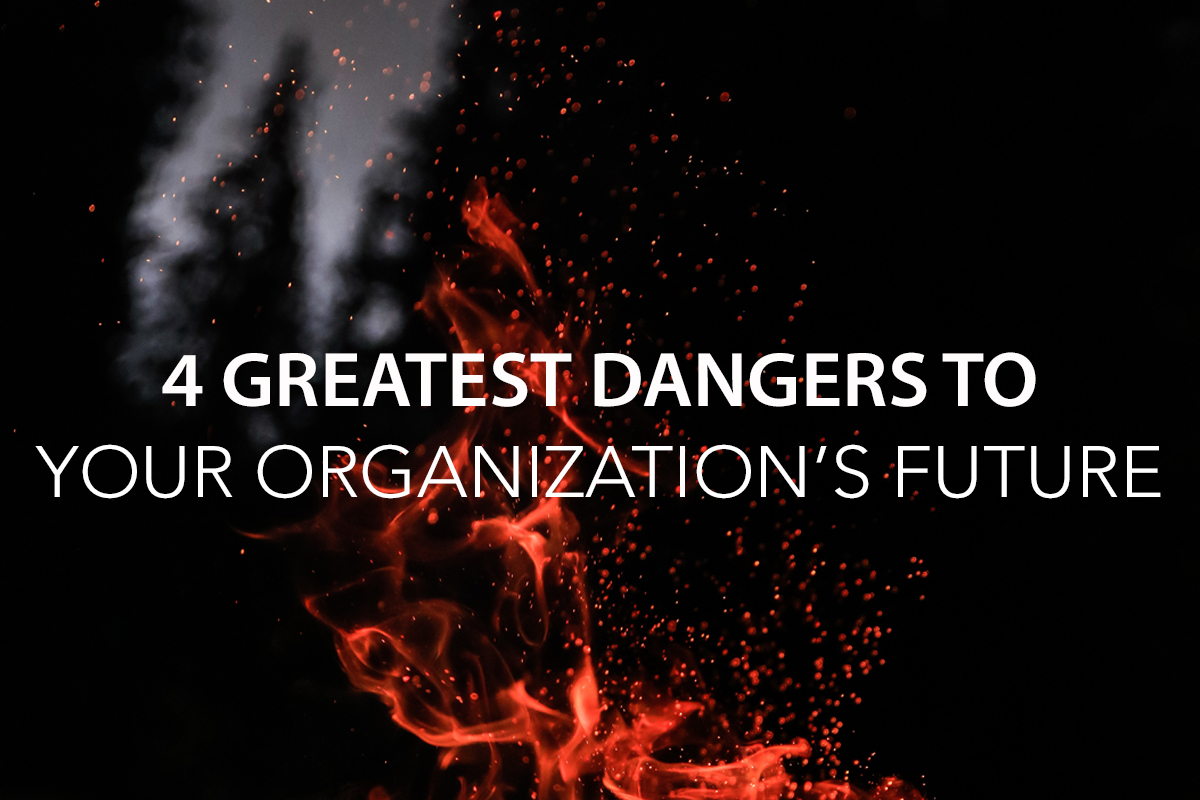If you read blogs or watch the news, you already hear the common warnings as to what can bring down your organization - things like cyberattacks, disruptive innovations, and catastrophic events. However, the following are four far more common dangers that can damage or even destroy your business, organization or ministry.
1. Inaction
Yes, there are plenty of churches, businesses and non-profits that have experienced harm from over-action. However, those organizations are a minority compared to the leaders and boards who fail to act even when confronted with all of the evidence calling for action. Sometimes, the greatest inaction on the part of a board is failing to confront (and even remove when necessary) a leader who is failing to do his job well or a leader who fails to seek help when her organization is surely showing evidence of sinking. The motto of such leaders and boards is “Ready. Aim. Do Nothing!”
2. Overconfidence
Failure can be deadly, but so can success. Success breeds confidence, and confidence is great – it can help an organization take risks, recruit good staff, attract donors or investors, and add to a healthy team culture. BUT, too much of a good thing can have unintended consequences including a sense of invincibility (“we will always succeed”) and an attitude of pride (“we don't need any help because we are the best”). Every successful leader and organization can fall into the trap of overconfidence.
3. Average
Average staff with average skills working average hours producing average results will never produce an exceptional church or business. But it can surely kill it! Over time, many organizations somehow end up with far more average team members than exceptional ones. Don’t get me wrong, God can and does use average people to accomplish great things. But average alone will never produce exceptional results. Every team must have enough catalyst leaders to ensure positive and ongoing movement towards the mission.
4. Self-preservation
No leader will ever acknowledge that his or her primary mission is self-preservation. But in reality, all leaders are human and all humans have moments when they are looking out for their own interests over that of the organization. It is a pathetic sight to watch a leader control, manipulate, and maneuver in order to hold onto power, even when he is hurting the very people and organization he claims to care about. Whether it is the power, financial needs, or a fear of retirement, a leader who is heavily motivated by self-preservation will cause harm to the mission and his own credibility.
Sometimes an outside perspective is all that is needed to identify if an organization is headed towards danger. Contact us to speak with one of our consultants!
Jay Desko is the CEO of The Center Consulting Group and brings experience in the areas of organizational assessment, leadership coaching, decision-making, and strategic questioning. Jay’s degrees include an M.Ed. in Instructional Systems Design from Pennsylvania State University and a Ph.D. in Organizational Behavior and Leadership from The Union Institute.





![Public Speaking: Using AI Ethically & Effectively to Create a Powerful Speech [VIDEO]](https://images.squarespace-cdn.com/content/v1/571fc0ea1d07c0fd6d72c167/1763735597032-XMIKMQ1D63PRC1QJ6FVV/ai+speech+blog.png)
